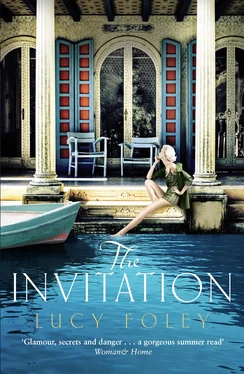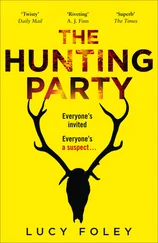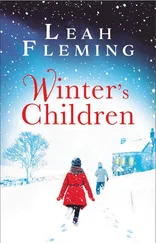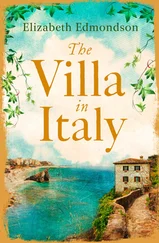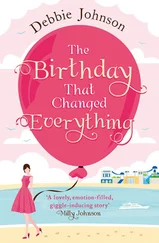1 ...8 9 10 12 13 14 ...18 ‘You think you’re special,’ he tells the bird, labouring over the words, ‘but you aren’t. We’re all just chickens, underneath it all, however much effort we put into not revealing it.’
Later, he remembers the woman he saw in the gardens behind the house, at dusk. Though it was several hours ago he has some drunken idea that she will still be there; that he only has to go and look for her. So he makes his way round to the back of the house, and towards the dark line of cypresses, his way illuminated now only by the silver light of the moon. Of course, she is not there. Perhaps she was a figment of his imagination.
As he turns to make his way back to the house – he must go to bed, he knows, or wake up here covered in pine needles – he sees something gleaming dully upon the ground. He stoops, and finds an earring – a stud of some large, cut stone, the colour indiscernible in the gloom. He puts it in his pocket. So she was real, after all.
He wakes with a start, and stares about in confusion at the unfamiliar room. He knows that he is not in Rome, because there his view is of the tired brickwork of the building opposite. Here he can see only lancing blue. Everything hurts him: the strength of the light, the whiteness of the room … He shuts his eyes, and opens them again, hoping that the pain this time will have lessened, but there is no change. Shakily he climbs out of the bed and sways his way across to the bathroom. Now he is remembering, but in a series of dislocated images: a peacock, the Contessa’s monk-like robe, that final drink. A man with white teeth bared in a smile.
His face in the mirror betrays little of the night’s excess. ‘It’s strange,’ Suze told him, once, ‘but you somehow look even better when you’re tired. It’s almost unnerving.’ But he does feel terrible. What would help, he feels, would be to bathe his head with cool water. He splashes his face with water from the tap, but he can’t seem to get it cold enough. He thinks: the sea.
It is still early enough that most of the guests won’t yet be about. Certainly, no one is visible as he makes his way downstairs and down through the gardens. And yet as he nears the end of the path he glimpses movement at the far end of the jetty, and stops. A golden head emerges, then the rest of her. She wears a black bathing suit, high at the neck but generously cut away at the shoulders. He watches her move up the jetty toward him and feels a nudge of recognition. A famous actress, perhaps. After all, anything is possible in this place.
She stoops and picks up her wrap, which lies strewn across the boards, and ties it with a quick, careless movement about her waist. Hal watches, standing completely still as if under some sort of spell.
She has nearly reached the path. For the first time he sees her face properly, and only now does he recognize her.
She looks different from the last time he saw her – still beautiful, of course, but before everything about her had seemed polished to a high sheen. Wet, her hair appears darker than before. Her legs are pale and bare.
He watches as she loops her wrap around the back of her head with her other hand – the left – to rub it dry. Then she glances up toward the house and sees him. He sees how she goes still, like an animal freezing before taking flight. He hurries his pace towards her, as though she might flee from him.
But she stays in her spot on the path, clutching the towel to herself.
‘It’s you,’ he says, as he walks toward her.
‘Yes,’ she says, quietly, ‘it’s me.’ He has somehow managed to forget the exact sound of her voice – the oddness hidden beneath the American accent, as though the latter has only been lacquered over the top.
She is not pleased to see him. He can see it in her face – the dismay, even something like fear. Her gaze moves up towards the house as though she is aware of an audience watching. Involuntarily he finds himself turning to look, but sees no one there.
‘I assumed I wouldn’t see you again,’ he says.
‘What are you doing here?’ she asks, as though he hasn’t spoken. Her voice is low, almost a whisper.
He stalls. ‘I’m the journalist,’ he adds, feeling suddenly put on the defensive. ‘I’m writing a piece for Tempo .’
‘Journalist? I thought you were a writer.’
‘I am.’ He tries not to sound too defensive. ‘It’s a form of writing, like any other.’
She doesn’t reply. He is unnerved by the fixity of her gaze. She is studying him as though trying to convince herself he is really there. Then, remembering herself, she looks away, gives a shake of her head. And when she looks back at him her expression is a blank. Hal has the distinct impression of a blind being drawn hurriedly down.
‘Well,’ she says, running her hand through her damp hair, ‘I see.’ And then, with visible effort, ‘And how have you been?’ There is an impersonal civility to her tone. This is not the woman he remembers. Then she had been reticent, but not false.
‘I didn’t see you at the party last night,’ he says.
‘Oh. I wasn’t feeling well.’
And then he thinks. ‘It was you, wasn’t it?’
‘What was?’
‘Last night. At the end of the garden, by the trees … wearing that black dress.’
Her face is a blank. ‘No,’ she says. ‘I was in bed.’
He remembers now the emerald stud in his suit pocket. ‘I found something – an earring.’
‘Not mine,’ she says, brusque. And then, politely, ‘Did you enjoy it? The party?’
‘I don’t remember that much of it, to be honest.’
‘Ah,’ she nods. ‘And who did you meet?’
‘Aubrey Boyd, Signor Gaspari. Another man, an American – Truss, that was his name. Do you know—’
But she cuts him off. ‘The water’s cold,’ she says, and draws the towel tighter about herself. ‘I have to go and change into something warmer.’ Still she avoids his gaze. ‘I’ll see you later, perhaps. At breakfast.’
‘All right,’ Hal says. ‘I meant to ask—’
But she has already moved beyond him – carefully, so that a good couple of feet of air remain between them – and is striding purposefully toward the house. He watches her all the way up the path, the wrap snickering away from her in the breeze.
He walks down to the jetty, where her wet footprints form a trail on the bleached wood, yet to dry in the sun. He shrugs off his shorts and shirt and, without giving himself time to think about it, dives from the end. Only too late does he realize that he does not know how shallow it is, but he is lucky – when he rights himself his feet don’t touch the bottom. And frigid; very much a spring sea, without weeks of warmth behind it. A sting against the flesh, but gradually becoming bearable. He has swum in the Solent in April; it is nothing compared to that. He has known greater cold, too, cold that steals the breath and binds fast and deadly to the flesh. But he will not think of that.
He lets it surround his aching head; rolls onto his back and kicks away from the shore. The water is still about him. It seems to cradle him, to buoy him up. This is the sea of his boyhood: of childhood trips to the Sussex coast.
They had gone to the beach together: Hal and his parents. East Head had been the favourite, a white spit of land crested with soft dunes. Water, warm in the summer shallows but cold where the bottom shelved into the main channel. It was where he learned to swim – a good place for it, because it was so benign. No, he thinks now. That’s not quite right. Not all benign. The treachery of memory. At the far end of the spit the calm surface hid a secret current, straight out towards France. A woman had been swept into the open sea one summer. A child the next year – and her father had saved her, only to drown himself. He was never allowed to swim at that end of the beach, and there was a flag there, to warn of it. But every summer someone disregarded the warning.
Читать дальше
